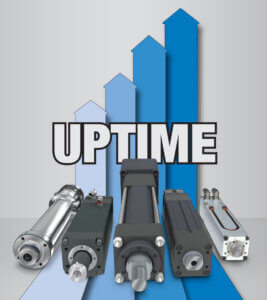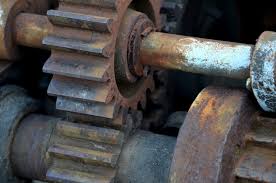
Maximize Your Uptime With Electric Linear Actuators
Maximize Your Uptime With Electric Linear Actuators To meet demand to minimize downtime in automation environments, many engineers are turning to electric linear actuators to design low-maintenance machines.

Electric valve actuators: The best choice for process control
Process engineers have several choices when it comes to actuators for rising stem valves – manual, pneumatic, hydraulic and electric. Manual actuators satisfy simple on-off needs. Pneumatic valve actuators are fast and low cost. Hydraulic systems can be a solution for high force applications and remote installations. For critical process control applications, though, electric valve actuators can deliver what process engineers are striving for - increased productivity, greater efficiency and less downtime. In other words, electric actuators improve processes and save money.

Stainless steel linear actuators stand up to corrosion, tough conditions
Machine designers who develop systems for harsh environments often need corrosion resistant components, including stainless steel linear actuators, to stand up to challenging environmental conditions. Corrosive agents, moisture and dust in manufacturing environments impact the performance and life of automationn components. Dust and debris may enter housings causing wear. Moisture may short electrical connections. Corrosive agents can eat away at housings, seals, fasteners and more. For confirmation that a component will stand up to environmental factors, we recommend the IP (International Protection or Ingress Protection) rating system.

Selecting a choke valve operator for MPD. What’s best?
As oil and gas drilling environments grow more challenging, the need for the enhanced control provided by managed pressure drilling (MPD) grows too. The drilling choke valve is an essential component in an MPD system, and the drilling choke valve operator (choke valve actuator) provides the vital element of control. It’s the valve operator that communicates the control software’s commands and provides position feedback to the control system. It stands to reason that selecting the best valve operator is critical to the success of an MPD system.

 Ask an Engineer
Ask an Engineer